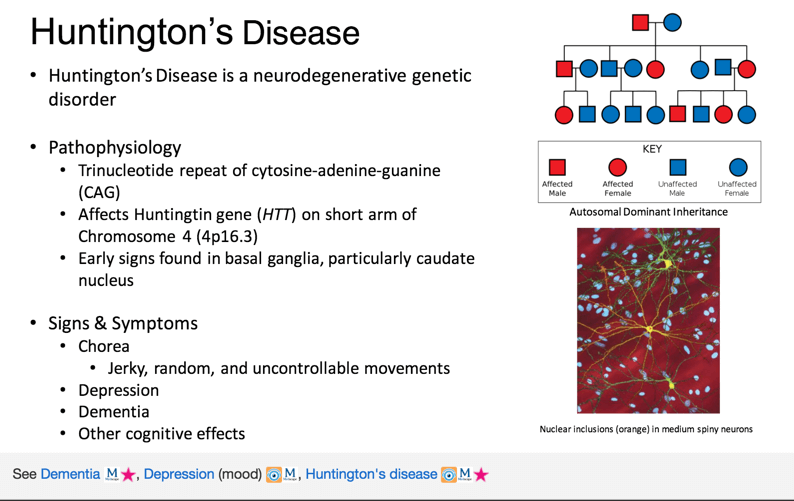Relevance: Prelims: General Science

Why in news?
- A team of scientists from National Centre for Cell Science (NCCS) in Pune unravelled a key cellular mechanism in Huntington Disease.
About:
- Huntington disease (HD) is a progressive genetic disorder affecting the brain that causes uncontrolled movements, impaired coordination of balance and movement, a decline in cognitive abilities, difficulty in concentrating and memory lapses, mood swings and personality changes.
- It is caused by a mutation in a gene called HTT. The HTT genes are involved in the production of a protein called huntingtin. They provide the instruction for making the protein.
- When the genes mutate, they provide faulty instructions leading to production of abnormal huntingtin proteins and these form into clumps. The clumps disrupt the normal functioning of the brain cells, which eventually leads to death of neurons in the brain, resulting in Huntington disease.
- A team of scientists from National Centre for Cell Science (NCCS) in Pune observed that the pathogenic Huntingtin protein causes a decrease in the overall protein production in cells and that the Huntingtin clumps collect together (sequester) molecules of another protein called Orb2, which is involved in the process of protein formation.
For more such notes, Articles, News & Views Join our Telegram Channel.
Click the link below to see the details about the UPSC –Civils courses offered by Triumph IAS. https://triumphias.com/pages-all-courses.php

